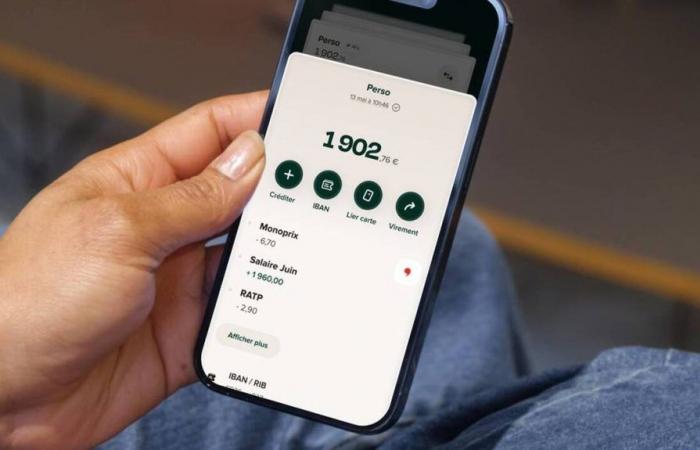500 billion euros. In France, this is all the money lying dormant in the current accounts of bank customers. This would represent on average €16,562 per account, according to a calculation by the specialized site Moneyvox which is based on the principle that there were 30 million French households. A sum far from negligible, which would be remunerated if it were instead placed in regulated savings accounts for example… But what few people know is that it could also be remunerated while remaining in your current account !
“15 billion given to banks at the expense of individuals”
Indeed, banks and other financial institutions with a banking license place all of their deposits with the European Central Bank (ECB). Depending on the economic situation, the latter remunerates them according to the remuneration (or “facility”) rate of deposits. This is one of three ECB key rates, which were lowered on Thursday June 6. The one that interests us has therefore fallen to 3.75%, after having remained at 4% since September. For nine months therefore, the ECB paid the 500 billion outstanding current accounts at this rate.
“It’s as if we had given 15 billion euros to the banks, at the expense of individuals”, considers Aude Poulain de Saint-Père, lawyer in banking law at the Paris bar. Banks could actually redistribute all or part of this jackpot to their customers. Why don’t they do it? To understand, you need to do a little banking history. And go back to 1966, a time when salaries were still systematically paid via envelopes filled with banknotes Then also spent in cash. The Debré-Haberer reform, aimed at liberalizing the banking system, modernized all that.
A situation unfavorable to the consumer
One of its objectives was to encourage the French to open bank accounts. To do this, the government is asking banks not to charge for certain services such as account maintenance or checks. In return, he agrees to prohibit the remuneration of current accounts, which allows banks to receive a windfall thanks to the remuneration of deposits by the central bank. At the time, everyone was a winner. “Except that in the meantime, the banks, while still not remunerating their customers’ current accounts, have started to charge more and more for services”traces Aude Poulain de Saint-Père.
READ ALSO: The money in your current account soon to be paid by the banks?
A particularly unfavorable situation for the consumer. We had to wait until the 2000s and a decision by the European courts for things to change. In 2002, the French subsidiary of CaixaBank wanted to market a sight deposit account paying 2% per year. But it had been banned by the Banking Commission, the ancestor of the ACPR (Prudential Control and Resolution Authority). The Spanish bank then initiated proceedings before the European Court of Justice (CJEU) to try to overturn what was then a French exception.
“The banking world is an oligopoly”
And she succeeded: in 2005 the CJEU then the Council of State agreed with her and the ban on paid accounts was lifted. CaixaBank France can therefore finally offer its interest-bearing current account. We could then say that other banks will follow suit. But very few risk it: among the major network banks, only the Caisse d’Épargne tries, before quickly giving up. “The banking world is an oligopoly, no one would have found any interest in this remuneration of deposits developing”, justifies Master Poulain de Saint-Père. Instead, most of these establishments offer, for example, term accounts (CAT).
And then, in a country where regulated savings have always been strong with products like the Livret A or the LEP, the demand for remuneration on current accounts has never really existed among banking customers. But perhaps the arrival of new banking players could help create this demand?
In recent years, “neobanks” have emerged, that is to say online banks which are not subsidiaries of a large group (Boursorama depends on Société Générale, Fortuneo on Crédit Mutuel Arkéa, etc.). Some of these players offer their customers remuneration for their deposits: this is the case of the Dutch Bunq and the German Trade Republic, which each offer an offer of this type to their French customers.
Lydia kicks the banking anthill
In mid-May, the Lydia company announced the launch of Sumeria, a new application bringing together all of its banking services. Among the latter is the possibility of benefiting from an “interest-bearing current account”. “If Sumeria is your current account, for your personal expenses, as a couple, or both, then you will receive interest on all your money, 4% for the first four months, then 2%”sold the company to present its new offering.
Unlike bunq and Trade Republic, Lydia is rather well-known among the French since 8 million of them were won over by its free instant transfer solution. The launch of this “interest-bearing current account” therefore constitutes a sort of kick in the banking anthill. If this offer were to find success with consumers, perhaps traditional banks would also start remunerating deposits?






